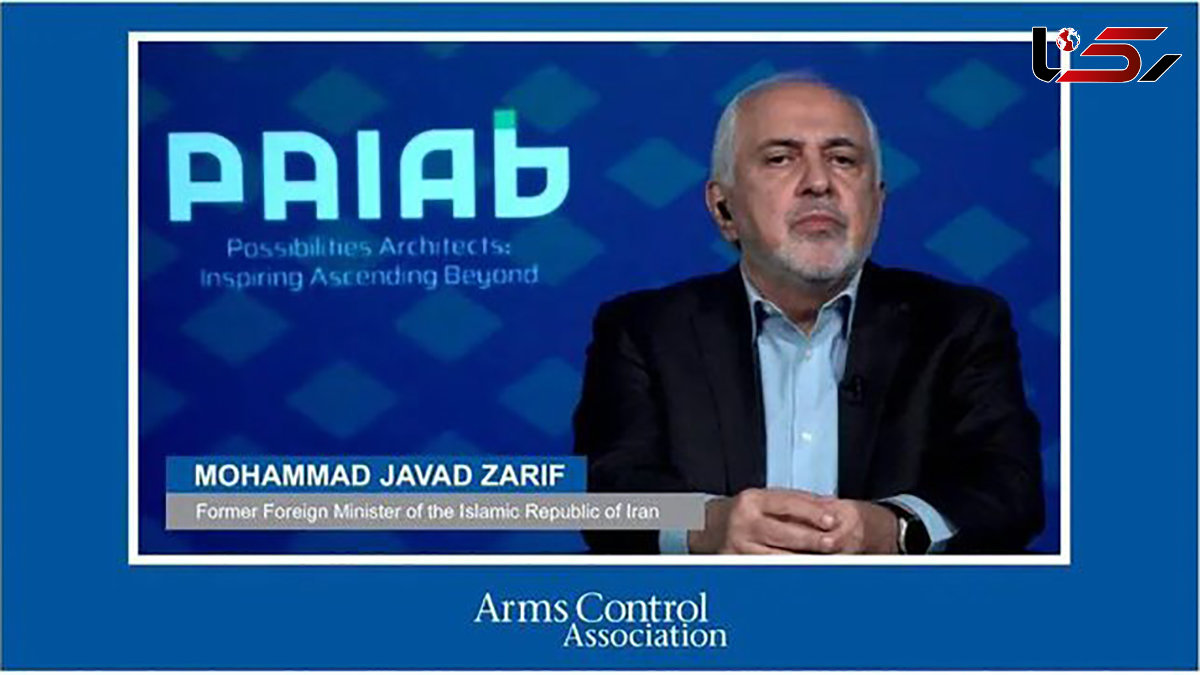Mohammad Javad Zarif: If Iran’s Goal Was a Bomb, It Would Have Built One / Iran Raises Enrichment Level Above 60%
Rokna Political Desk: Mohammad Javad Zarif, in a session at the Arms Control Association in Washington, emphasized that the reinstatement of UN Security Council resolutions (snapback) would achieve nothing but weaken diplomacy and strengthen Iran’s resistance, calling the notion of negotiating under such pressures “foolish.” He stated that Iran is not pursuing a nuclear bomb and considers its nuclear program a symbol of dignity and independence.

According to Rokna, Mohammad Javad Zarif, former Foreign Minister of the Islamic Republic of Iran, in an online address to the Arms Control Association in Washington, rejected the premise that Iran would yield to external pressures, stating: “The missing element in Western narratives about Iran’s nuclear program is dignity.”
Referring to recent claims by U.S. President Donald Trump at the United Nations that “the world’s biggest state sponsor of terrorism should not possess nuclear weapons,” Zarif remarked: “Israel, the most dangerous state terrorist in the world, already possesses nuclear weapons and has committed widespread crimes, including genocide in Gaza and attacks on civilians in Lebanon, Syria, and Yemen.”
Reviewing the history of Iran’s nuclear program, he noted that the “paralyzing” Obama-era sanctions, UN Security Council resolutions, the Stuxnet cyberattack, the assassination of nuclear scientists, and military attacks did not halt Iran; rather, they strengthened its resolve.
Zarif added: “During Trump’s maximum pressure campaign, Iran’s enrichment capacity increased from 5,000 SWU in 2019 to 130,000 SWU in 2025, with enrichment levels exceeding 60%.”
He emphasized: “Iran’s knowledge cannot be bombed. Attacks on nuclear facilities have driven Iran to rely on itself and continue its nuclear program without pursuing weapons.”
Questioning why Iran has not built a nuclear bomb despite heavy costs, he stated: “If Iran’s goal were a bomb, it would have built one by now. Iran sees its nuclear program as a symbol of independence and dignity and is unwilling to trade it.”
Zarif further said: “Narratives suggesting that increased pressure will eventually force Iran to submit miss the crucial point: Iran’s dignity. Iranian leaders and the majority of its people view the nuclear issue through the lens of national pride, historical honor, and resilience, not cold calculations of nuclear capability or economic cost.”
Referring to the success of the 2015 JCPOA, he stated: “The JCPOA succeeded because it recognized Iran’s enrichment capabilities and ensured equal engagement. However, Trump’s withdrawal, the continuation of the same approach under Biden, and Europe’s failure to fulfill its commitments weakened this achievement.”
He added: “Instead of fulfilling commitments, Europe blamed Iran, and three European countries endorsed the campaign against Iran’s nuclear program.”
Zarif criticized Israel’s immunity, noting that “with about 200 nuclear warheads, Israel remains untouched by sanctions and even receives generous aid,” and stated: “Israel fears peace. Netanyahu has destroyed every opportunity for regional stability, seeking to divide Iran and neighboring countries to realize the delusion of ‘Greater Israel.’”
Regarding Europe’s snapback efforts, he said: “The current delusion that reinstating UN Security Council resolutions against Iran would give the U.S. and EU better negotiating leverage is sheer foolishness. In practice, it weakens engagement, provokes mere resistance, destroys the credibility and importance of diplomacy, undermines Europe’s role, and deepens hostility toward the U.S. as an unreliable bully.”
The former Iranian Foreign Minister proposed that resolving the issue requires adopting a paradigm based on dignity and introduced the idea of a “Middle Eastern Network for Nuclear Research and Advancement” (MENARA), a regional institution for peaceful nuclear cooperation and transparent oversight.
Zarif concluded: “We must move beyond past failed assumptions and build an inspiring future based on mutual respect.”
Send Comments